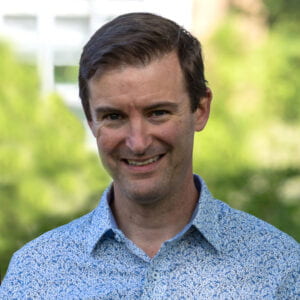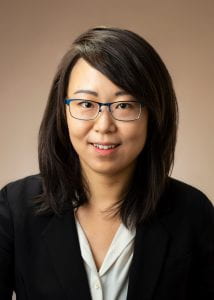2024 Project: Programmable Plants and the Internet of Living Things
Lead Faculty: Abe Stroock and Sijin Li, with the Center for Research on Programmable Plant Systems
Department: Smith School of Chemical and Biomolecular Engineering, Cornell University
Project Description
The 2024 CURIE scholars will explore the science and technology of “Programmable Plants” through active learning experiences in biotechnology, plant biology, chemical and material engineering, mechanical engineering, electrical engineering, computer science, and public communication. The activities throughout the week will support scholars in developing visions of how integrating plants within an Internet of Living Things (IoLT) can enable a future of sustainable and resilient agriculture. On each of the first four days, scholars will learn biological and engineering concepts and apply them to experiments involving technological and scientific approaches from the instructors’ fields of research. On the fifth day, scholars will learn principles and practices of science communication and develop presentations for a public audience (for example, their parents!) on visions for programming plants and IoLT applications in agriculture and beyond.
Project ideas could include:
- “Plant collaboratives” in which programmed plants interact with each other and humans to monitor and manage their growing environment to thrive in the face of a changing climate, pests, and microbes.
- “Plant explorers” in which programmed plants act as living robots that navigate inaccessible places like the soil, the inside of humanmade structures, or in and around other organisms for discovery and repair.
- “Plant factories” in which programmed plants produces valuable molecules and materials from chemical synthesis through purification and packaging to replace the labor, material, and energy intensive processes of today’s manufacturing of pharmaceuticals.

Instructors (preliminary list)
Abe Stroock (lead) – Chemical and Biomolecular Engineering
Sijin Li (co-lead) – Chemical and Biomolecular Engineering
Taryn Bauerle – Horticulture Section, School of Integrative Plant Sciences
Margaret Frank – Plant Biology Section, School of Integrative Plant Sciences
Rob Shepherd – Mechanical and Aerospace Engineering
José F. Martínez – Electrical and Computer Engineering
Bruce Lewenstein– Department of Communication
April Gu – Civil and Environmental Engineering
About the faculty leads:
 Professor Abe Stroock
Professor Abe Stroock
Abe Stroock is a professor in the Smith School of Chemical and Biomolecular Engineering and adjunct professor in the School of Integrative Plant Sciences at Cornell. He is the PI and Director of the NSF STC Center for Research on Programmable Plant Systems (CROPPS). After completing a bachelor’s degree in Physics at Cornell, Stroock spent two years in France where he worked in the research division of Electricité de France and completed a master’s degree at the University of Paris VI and XI in Solid State Physics. He then returned to the US to pursue a PhD in Chemical Physics at Harvard University. The Stroock lab focuses on manipulating and measuring dynamics and chemical processes on micrometer scales with an emphasis on biophysical contexts. Current efforts in the lab center around the transport, thermodynamics, and physiology of water in plants and in synthetic systems inspired by plant function. He received an MIT Technology Review TR35 Award and an NSF CAREER Award, and in 2023 he became a fellow of the American Association for the Advancement of Science.
 Professor Sijin Li
Professor Sijin Li
Sijin Li is an Assistant Professor from the Robert Frederick Smith School of Chemical and Biomolecular Engineering, Cornell University. She received her B. S. degree in Chemical Biology from Tsinghua University in 2008, and her Ph.D. degree in Chemical and Biomolecular Engineering under the guidance of Prof. Huimin Zhao at the University of Illinois, Urbana-Champaign in 2014. Then she moved to Stanford University and worked with Prof. Christina D. Smolke as a postdoctoral scholar. Prof. Li joined Cornell University in the fall of 2019. She is the recipient of the President’s Council of Cornell Women Affinito-Stewart Grant, the Cornell Institute for Digital Agriculture Research Innovation Award, the NSF CAREER Award, and the Schwartz Research Award.
The Li Lab’s research has been focused on the discovery and reconstruction of novel plant natural product biosynthetic pathways from medicinal plants using synthetic biology approaches. The Li lab is also interested in the development of programmable plants for long-distance signaling and communication in planta. Professor Li’s research interests also include development of engineered living materials and metabolic engineering for the biomanufacturing of valuable products.
